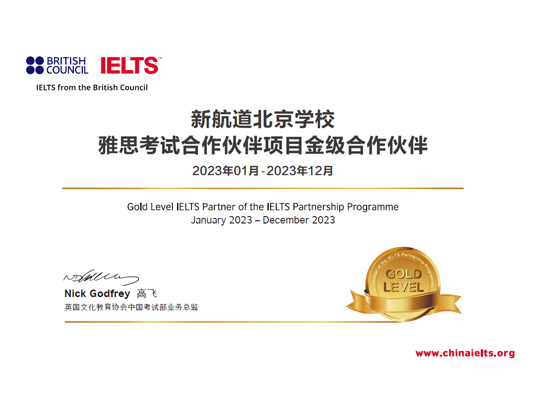当前位置:首页 > 留学频道 > 科研类 > 背景提升丨海外科研远程:教育异化现象背后潜在的社会危机、地缘政治挑战,全球化进程中的跨国教育体系建设与联合教育改革综合研究
发布时间:2024-07-29 关键词:海外科研远程
摘要:课时安排:7周在线小组科研学习+5周不限时论文指导学习
『人文社科』-国际教育专题:
教育异化现象背后潜在的
社会危机、地缘政治挑战
全球化进程中的跨国教育体系建设
与联合教育改革综合研究
开始日期:2024-07-27
课时安排:7周在线小组科研学习+5周不限时论文指导学习
Prerequisites
适合人群
适合年级(Grade):高中生/大学生
适合专业(Major):
教育学、国际教育、教育社会学以及对教育全球化、跨国教育体系建设比较感兴趣的学生
建议选修:学术方法论与学术沟通礼仪
Instructor Introduction
导师介绍
Jo-Anne
剑桥大学
University of Cambridge
终身正教授&中心主任

Program Background
项目背景
知识社会的到来凸显了知识和教育之于经济社会发展的价值,但也加剧了全年龄段教育中知识生产、传播与应用的功绩主义和经济主义。
长期以来,学界更加关注知识社会的来临,为世界教育发展带来的机遇,而较少注意隐藏在“知识社会”这一“具有规范性的现代性视野”背后的功绩主义和经济主义价值观,对于教育发展的消极影响。
从社会发展的趋势来看,一定是工业化的高等教育,为适应知识社会的到来而转型发展,而不是知识社会为适应工业化的高等教育,而停滞不前;
在从工业社会向知识社会转型的过程中,高等教育系统有机会也有责任通过深度变革彰显其引领作用,并避免“知识经济视野”禁锢教育体系的想象力。
Program Description
项目介绍
本项目被视为英美教育培养体系中的教育学基础项目,项目旨在帮助学生从社会政策、社会环境等社会学角度理解当今世界的教育大环境,包括教育体系、教育政策与国际教育体验。
在本项目中,我们将从跨国视角探讨教育-社会学,并确定21世纪教育社会学家们目前面临的主要全球性挑战和危机,并评估解决这类挑战对于21世纪全球社会问题和危机方面的具体价值体现。项目将讲述教育是如何在当代被视为塑造政治生活、公民身份、国家安全的系统性风险、未来国民经济发展、行星危机以及国家和地区的全球治理挑战的主要现决定性因素与社会功能性机构。
项目中的内容包括两部分,部分是从“全球化”角度探讨当代教育:这个角度的主要目的是让学生加深对全球社会学理论和概念的理解,以及对21世纪全球教育挑战的分析。从跨国教育的角度研究全球社会及其相关挑战,探索它们与社会学和教育学的关系;地缘政治和教育,全球公民,人类运动和流动性(包括理解难民和人类流离失所的概念);全球政治和危机(战争和暴力)对教育发展的影响;行星危机和21世纪的技术异化在全球教育市场的具体体现。
第二部分是从“跨国化”角度理解教育,分析社会学中的“跨国化”是如何体现在当代教育体系之中的,以及如何将其作为一种机制来预测尚潜在的危机,将讨论与全球危机、地缘政治有关的一些主题,例如学生的全球流动性(或流动性限制)和高等教育市场的地缘政治斗争、全球人口流动、冲突和移民教育(例如与流行病有关)、跨国化和数字人工智能世界。项目中将使用案例研究的方法来探讨这些问题,同时使用创新的教学方法来探索跨国教育社会学的具体实施方法(使用电影,播客,视觉和档案方法,人文地理方法,制图和全球可视化(GIS技术))。
In this introductory course, we will explore the Sociology of Education from a global transnational perspective and identify key 21st global challenges and crises that sociologists of education are currently confronting. We also assess its value in tackling 21st global issues and crises. An introduction to 21st global challenges and crises as it they relate to education is perhaps one of the most significant topics we can study in this moment in time. This is because education is now seen as one of the primary modern institutions shaping political life, citizenship, systematic risks in relation to security, future national economies, planetary crises and global governance of nations and places. Education also plays a central role in driving state agendas for the future of a nation’s success not only in global markets but also in relation to geopolitical transformations. The primary aims will therefore be as follows:
(1)to study global societies and associated crises and challenges from a transnational educational perspective. To comprehend these challenges, it is crucial to examine them in greater depth and explore them relation to a global understanding of sociology and education. Topics such as geo-politics and education, global citizenship, human movement and mobility (including comprehending concepts of the refugee and human displacement), global politics and crises (war and violence), planetary crises and 21st century skill sets in the global education market. This orientation implies a comprehension of global sociological theories and concepts, a firm understanding of globalization as a transnational feature of global societies, alongside an analysis of 21st global challenges to education In this way, we can ensure that your learning about education from a sociological perspective is truly global in nature;(2)to understand what a ‘transnational’ sociology of education of education looks like and how it can be applied as a mechanism for predicting crises yet to come and to resolve many of the challenges we will discuss in the classes. Hence, some topics we discuss in relation to global crises and challenges will be related to geopolitics such as the global mobility (or mobility constraints) of students and geopolitical battles over Higher Education markets, global human movement, conflict and migration education (in relation to, for example, the pandemic), transnationalisation and the digital AI world and planetary crises. In each class, we will explore these issues using a case study approach to explore 21st century challenges and crises alongside the use of innovative teaching methods to explore how a transnational sociology of education might seek to confront them (the use of film, podcasts, visual and archival methods, human geography methods, mapping and global visualization (GIS technology) to fully comprehend the course content. We will also look at many of the techniques that sociologists use to assess these challenges and crises, including transdisciplinary methods.
Syllabus
项目大纲
学校型社会:正规学校教育的起源、教育的目的、教育的现状及未来发展 schooled society
知识型社会:知识经济与知识社会的概念、发展及其对教育和学习的潜在影响、对社会正义和公平理念的意义 knowledge society
21世纪科技加持下的特殊教育研究(针对身心缺陷人群,即盲人、听障人(聋人)、弱智儿童的教育实践)Education and Disabilities Studies
性别与教育:传统男子学校、女子学校与移民学校或被定义的某类人群专属课堂 Gender and Education
新型教育科技为社会带来的利与弊 Sociology of Education for the Digital Age
项目回顾和成果展示Program Review and Presentation
论文辅导 Project Deliverables Tutoring
Program Outcome
项目收获
7周在线小组科研学习+5周不限时论文指导学习
项目报告
学员获主导师Reference Letter
EI/CPCI/Scopus/ProQuest/Crossref/EBSCO或同等级别索引国际会议全文投递与发表指导(共同一作或独立一作可选)
结业证书
成绩单

